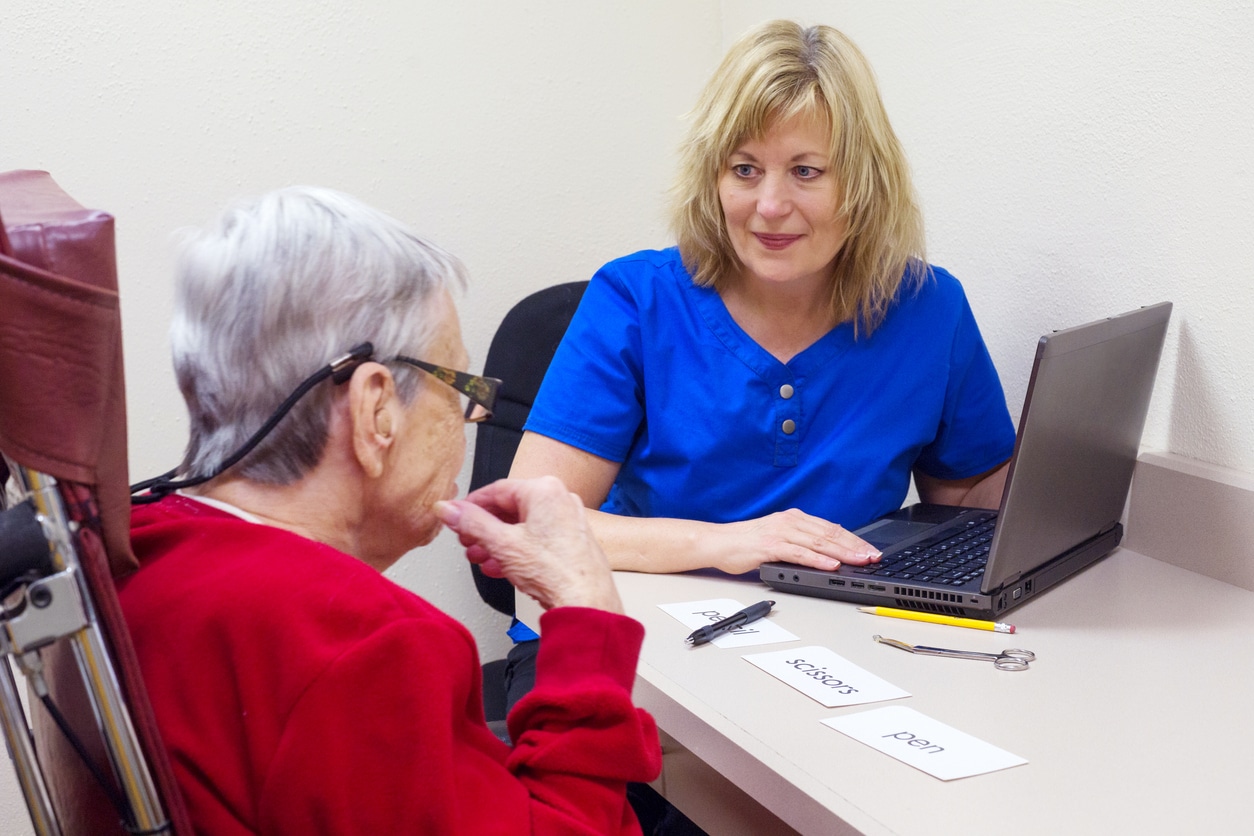Aphasia is a communication disorder resulting from damage to the brain’s language processing areas. It manifests uniquely across affected individuals, requiring a personalized treatment approach. In the United States, aphasia affects approximately 2 million people. Enhancing our understanding of aphasia can improve our interactions with those who live with this condition.
Recognizing Aphasia

Aphasia can arise in any person who has experienced brain damage, often on the brain’s left side. It is not widely prevalent but is notably associated with events like strokes. Aphasia comes in various forms, leading to different presentations.
Healthcare professionals diagnose aphasia by assessing:
- Fluency: This includes the flow, rhythm and articulation of speech, as well as the individual’s writing abilities.
- Comprehension: This involves the understanding of spoken and written language.
- Repetition: The capacity to echo words and sentences.
A combination of abilities and challenges in these areas helps to identify the specific type of aphasia. The diagnostic process may include a physical examination, sensory and neurological assessments, cognitive and memory evaluations and imaging tests. These assessments help in pinpointing the type of aphasia or eliminating other conditions. Following a diagnosis, a doctor can develop a customized approach to managing the symptoms.
Managing Aphasia Symptoms
While there is no definitive cure for aphasia, various strategies can manage its symptoms. Sometimes, treating the underlying cause, such as migraines or seizures, may restore normal communication once the brain has healed. In cases of persistent aphasia caused by a stroke, speech therapy is a viable treatment. Medications may also be effective for certain types of aphasia. A medical professional will determine the most appropriate treatment path for an individual’s specific situation.
Aphasia typically indicates brain injury or a significant neurological disturbance. If you or someone you know suddenly exhibits symptoms of aphasia, it is critical to seek emergency medical attention by calling 911. For more information on ENT or communication health, or to schedule an appointment, contact Alpine Ear Nose & Throat PC to schedule an appointment.